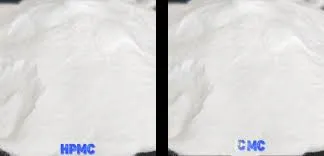
Οκτ . 19, 2024 15:51 Back to list
is hpmc water soluble
Is HPMC Water Soluble? Exploring Hydroxypropyl Methylcellulose
Hydroxypropyl Methylcellulose (HPMC) is a versatile cellulose derivative widely used in numerous industries, including pharmaceuticals, food, cosmetics, and construction. One vital characteristic of HPMC is its solubility in water, which significantly influences its applications and effectiveness. In this article, we will delve into the properties of HPMC, its water solubility, and how this property impacts its usage across various sectors.
What is HPMC?
HPMC is a semi-synthetic polymer derived from cellulose, which is a natural polymer found in the cell walls of plants. The modification involves substituting hydroxyl groups (-OH) in cellulose with hydroxypropyl and methyl groups. This modification results in a compound that maintains the structural integrity of cellulose while enhancing its functional properties. Depending on the degree of substitution, HPMC can exhibit different levels of viscosity and solubility.
Is HPMC Water Soluble?
Yes, HPMC is water-soluble, making it an essential ingredient in many formulations. When HPMC is mixed with water, it dissolves to form a viscous solution. The solubility of HPMC in water is attributed to the hydrophilic hydroxypropyl and methyl groups that are introduced during its synthesis. The extent of solubility may vary based on factors such as the degree of substitution and the molecular weight of the polymer.
HPMC primarily exists in two forms low-viscosity and high-viscosity. Low-viscosity HPMC dissolves quickly in water and is often used in applications requiring a thin film or quick thickening. On the other hand, high-viscosity HPMC has a more robust thickening effect and forms viscous solutions suitable for more substantial applications.
Applications of Water-Soluble HPMC
is hpmc water soluble

The water solubility of HPMC enables its use in various applications
1. Pharmaceuticals In the pharmaceutical industry, HPMC is frequently used as a binder and film-coating agent in tablet formulations. Its water solubility ensures that the active ingredients are released effectively in the body. Additionally, HPMC is utilized in controlled-release formulations, where the solubility plays a crucial role in determining the release rate of the drug.
2. Food Industry HPMC serves as a food additive, acting as a thickener, stabilizer, and emulsifier. Its ability to dissolve in water allows food manufacturers to produce products with desirable textures and viscosity. It is often found in sauces, dressings, and various processed foods to provide a smooth consistency.
3. Cosmetics In cosmetics, HPMC’s water solubility allows it to be used as a thickening agent and stabilizer in creams, lotions, and gels. It helps to enhance the hydration properties of skincare products, providing a moist feel when applied to the skin.
4. Construction HPMC is also used in construction materials like tile adhesives and cement mixtures. Its water retention properties help maintain moisture, facilitating better adhesion and workability of construction products.
Conclusion
In summary, hydroxypropyl methylcellulose (HPMC) is indeed water-soluble, which is one of its most significant attributes. This solubility allows for a wide range of applications in different sectors, from pharmaceuticals to food and cosmetics. The ability to form viscous solutions makes HPMC a valuable ingredient that enhances product performance by improving consistency, stability, and texture. As industries continue to seek efficient and effective solutions, the role of water-soluble HPMC is likely to expand further, making it a crucial player in innovation and development. Understanding the properties and applications of HPMC will help manufacturers and researchers optimize its use to meet specific formulation requirements.
-
Versatile Hpmc Uses in Different Industries
NewsJun.19,2025
-
Redispersible Powder's Role in Enhancing Durability of Construction Products
NewsJun.19,2025
-
Hydroxyethyl Cellulose Applications Driving Green Industrial Processes
NewsJun.19,2025
-
Exploring Different Redispersible Polymer Powder
NewsJun.19,2025
-
Choosing the Right Mortar Bonding Agent
NewsJun.19,2025
-
Applications and Significance of China Hpmc in Modern Industries
NewsJun.19,2025







